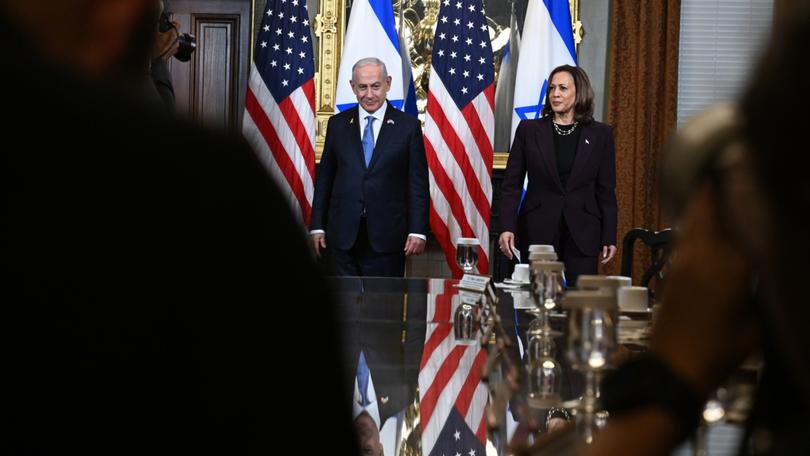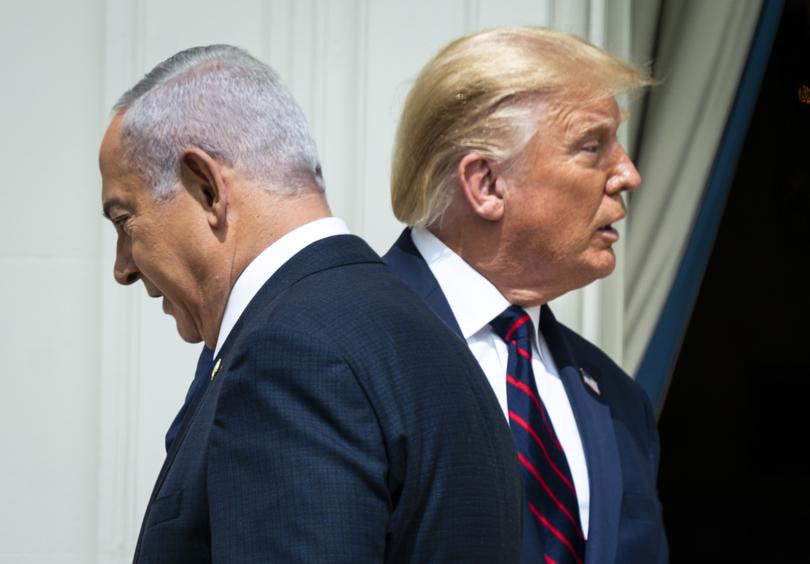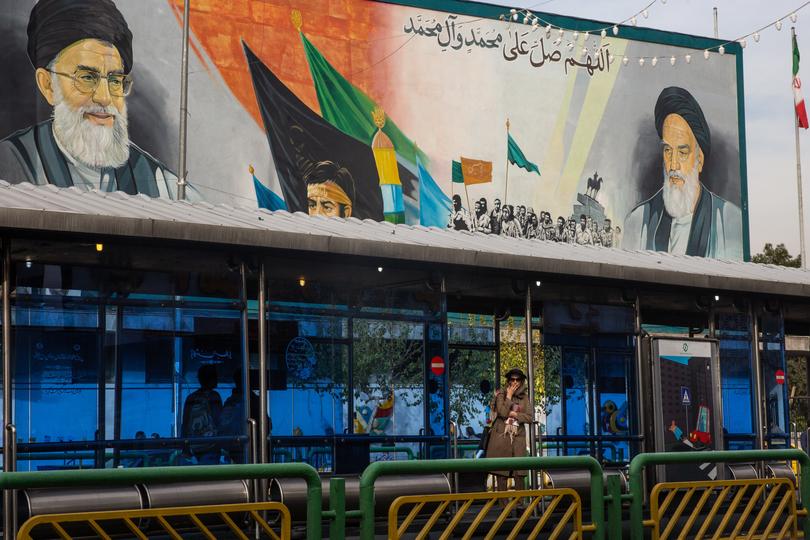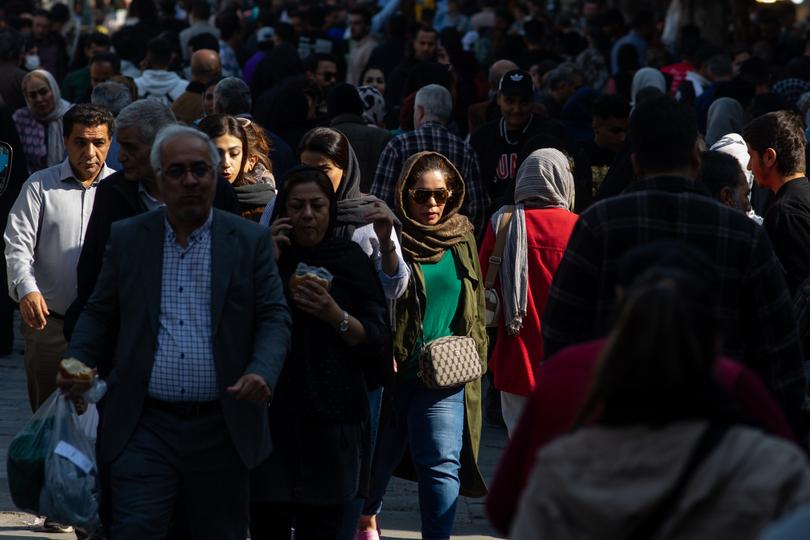THE NEW YORK TIMES: Israel calls shots in Middle East as US plays a less pivotal role
As the dust settles from Israel’s latest military strikes against Iran, analysts and former diplomats say one thing is clear: Israel, for better or worse, is dictating events in the Middle East.

As the dust settles from Israel’s latest military strikes against Iran, analysts and former diplomats say one thing is clear: Israel, for better or worse, is dictating events in the Middle East. The United States has been relegated to the role of wing man, as its ally wages war on multiple fronts.
That is a seminal shift. Whether on the battlefields of Iraq or in the presidential retreat at Camp David, the United States has long viewed itself as the pivotal player in the Middle East, acting boldly, if not always successfully, to alter the course of the region’s deadly history.
Now, as Israel unleashes attacks against its enemies — including Hezbollah in Lebanon, Hamas in the Gaza Strip and their backer, Iran — President Joe Biden finds his influence severely limited, and is engaged mostly in diplomatic cleanup operations rather than the grand peacemaking or wars of his predecessors.
Sign up to The Nightly's newsletters.
Get the first look at the digital newspaper, curated daily stories and breaking headlines delivered to your inbox.
By continuing you agree to our Terms and Privacy Policy.Some U.S. efforts have shown signs of influence: Israel heeded American warnings not to strike sensitive nuclear enrichment sites or oil production facilities in Iran, in retaliation for Iran’s bombardment of Israel with ballistic missiles early this month.
But more ambitious efforts, like American-led negotiations for a cease-fire with Hamas in Gaza, have failed to produce a breakthrough. And the United States has yet to propose, much less carry out, a comprehensive plan that would pull the Middle East back from a calamitous regionwide war.
Nor does it appear to have much influence on the Israeli leader, Prime Minister Benjamin Netanyahu, who has ramped up the conflict with Hezbollah and Iran, and continued the military campaign in Gaza, despite having killed the Hamas leader, Yahya Sinwar.
Netanyahu’s aim, experts said, is to use the impetus of the Hamas attacks to vanquish Israel’s enemies across the board. Israel’s defenders cast it as a once-in-a-generation opportunity to reshape the region’s perilous landscape. Critics say Israel is escalating the conflict without any plan for what comes after the conflict.
“You have a disconnect where the junior partner in the alliance has the grander vision for the region, and the senior partner is left trying to respond to events,” said Vali R. Nasr, a State Department official in the Obama administration who is now a professor at the Johns Hopkins School of Advanced International Studies. “This is not a good place for the United States to be.”

Rivals like China and Russia are taking note of the United States’ inability to curb Israel or contain the conflict in the Middle East, Nasr said. That could deepen President Vladimir Putin’s resolve to crush Ukraine or embolden President Xi Jinping of China to move against Taiwan.
What’s more, a wider conflict in the region would almost inevitably draw in the United States. It has already deployed warships to the Mediterranean Sea to deter Hezbollah and Iran, deployed commandos to Israel to help hunt for hostages and Hamas leaders, and helped Israel shoot down Iranian missiles.
“Core to the assumption of the Israelis is that in a wider war, the United States will be doing the fighting,” Nasr said. “The United States is sleepwalking into another long-term conflict in the Middle East.”
The Middle East conflict is taking place during a period of acute political uncertainty in the United States. Israel’s retaliatory strike against Iran came just 10 days before a presidential election that appears to be a dead heat between Vice President Kamala Harris and former President Donald Trump.

Harris has shown little daylight between her and Biden on the Gaza war, despite acknowledging that the White House’s policy of steadfast support for Israel has caused her problems on the campaign trail.
Trump has had his own problems with Netanyahu, dating to 2020, when the Israeli leader angered Trump by congratulating Biden on his election victory. But in recent comments, and in a phone call with Netanyahu, Trump gave strong backing for the Israeli campaigns against Hamas and Hezbollah.
“Biden is trying to hold him back,” Trump said to reporters last week, when asked about Netanyahu. “He’s trying to hold him back, and he probably should be doing the opposite, actually.”
The careful calibration of the Israeli strikes Friday may have kept Israel’s options open before the election. A more aggressive strike might have soured relations with a future Harris administration. If Trump wins, analysts said, Israel could take more aggressive action against Iran, such as targeting energy or nuclear facilities.
They also said that if Trump was elected, they would expect an effort to expand the Abraham Accords, under which several Gulf countries normalized relations with Israel during the Trump administration. But without a halt to the war in Gaza, and some hint of a path to a two-state solution for Palestinians, Saudi Arabia would be unlikely to move in Israel’s direction.

Under a President Harris, these analysts said, the United States would be more likely to pursue an “integrated approach,” addressing the Israeli-Palestinian problem, as well as Israel’s relations with its Arab and Muslim neighbours. But Biden’s inability to make much progress is a bleak omen.
Michael B. Oren, a former Israeli ambassador to the United States, said there was much in common between Netanyahu’s vision and Biden’s, despite their disagreement over the need for a Palestinian state.
But Oren said that even in the wake of the Oct. 7 attacks, “the White House believes their vision can be achieved without a preponderance of military force, while Netanyahu knows it cannot.”
Historically, diplomats said, the United States has been able to use upheaval in the Middle East to push for change. The 1973 Yom Kippur War planted the seeds for the Camp David accord between Israel and Egypt. The first Palestinian Intifada set the stage for peace talks during the Clinton administration.
“For sure, there’s a moment of hope here,” said Daniel C. Kurtzer, a former American ambassador to Israel and Egypt. “If you’re Israel and you have seriously weakened three of your most important enemies, you might say to yourself, ‘this is an opportunity to move the notch closer to regional stability and peace.’”
Yet what separates the current conflict from previous ones, Kurtzer said, is both the brutal nature of the Hamas Oct. 7 attack on Israel, which left its population traumatised in a way that previous wars did not, and the uncertain leadership in several key countries, not just the United States.
Iran, for example, has reacted fitfully to the confrontation with Israel. That reflects its own leadership succession questions, economic problems, domestic unrest, and the damage Israel has inflicted on its proxies.
As for Israel, Netanyahu still faces the prospect of prosecution over corruption cases, and he governs in a coalition with far-right ministers, some of whom view the Gaza conflict as a pretext to drive out the Palestinian population.
“There’s a vision there, but it’s not going to work,” said Kurtzer, who teaches at Princeton University. “It will only perpetuate the conflict.”
This article originally appeared in The New York Times.
© 2024 The New York Times Company
Originally published on The New York Times
